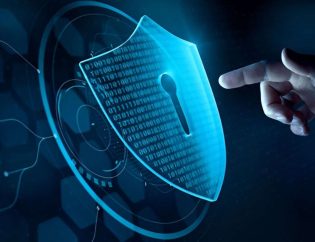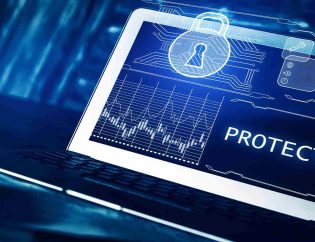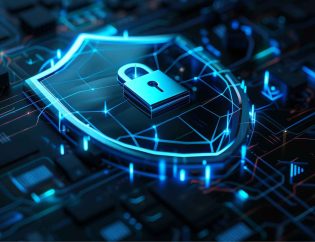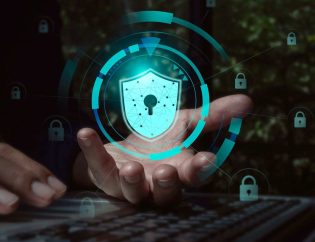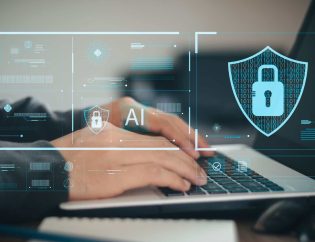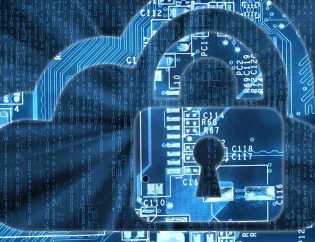
Table of Contents
Introduction
In today’s remote work era, leveraging modern endpoint management is essential for secure and efficient operations. This approach ensures seamless device management, robust security and enhanced productivity for distributed teams. By partnering with Endpoint Security Company like Hyper Secure, organizations can safeguard sensitive data and empower employees to work from anywhere with minimal disruptions. Embracing modern endpoint solutions helps businesses address the complexities of remote environments, creating a foundation for both innovation and resilience.
What is Modern Endpoint Management?
Modern endpoint management refers to a comprehensive approach that uses advanced tools and strategies to secure and manage organizational devices like laptops, tablets and smartphones. These tools integrate unified device management, cloud-based solutions and real-time monitoring to handle the challenges of diverse device ecosystems effectively. Unlike outdated systems, modern endpoint management is designed to scale with an organization’s needs, offering both security and adaptability for today’s dynamic workplaces.
This approach is built to support a wide range of operating systems, making it easier to manage different types of devices under one centralized platform. Modern endpoint management provides businesses with centralized dashboards to oversee operations, enabling IT teams to automate repetitive tasks like software updates and security patches. By streamlining IT processes, companies not only enhance operational efficiency but also ensure robust device security, which is crucial in meeting the growing demand for flexible and secure work environments.
Key Features of Modern Endpoint Management
Modern endpoint management provides:
Device Agnostic Support:
Compatibility with various platforms like Windows, macOS and Android.
Real-Time Monitoring:
Instant threat detection and risk mitigation.
Centralized Control:
Unified dashboards for managing all devices.
Automation Tools:
Enables seamless updates, patches and configurations.
These features ensure that businesses achieve both efficiency and security, enabling them to focus on strategic priorities rather than operational challenges.
Benefits of Modern Endpoint Management in Remote Work
Organizations using modern endpoint management experience significant benefits, such as:
Enhanced Security:
Sensitive data is safeguarded with robust encryption and advanced threat detection systems, reducing risks of cyberattacks and ensuring data integrity across all devices.
Increased Productivity:
Employees enjoy uninterrupted access to critical tools and resources, enhancing workflow efficiency and maintaining seamless operations regardless of their location or device.
Cost Efficiency:
Consolidating device management into a unified system significantly lowers IT overhead, streamlines operations and eliminates redundant technologies, providing long-term financial savings.
Compliance Assurance:
Adhering to industry-specific regulatory standards is easier with modern endpoint solutions, ensuring data protection and compliance with legal and organizational policies.
These benefits make modern endpoint management a critical component for thriving in remote work environments.
Modern Endpoint Security Challenges
Despite its benefits, implementing modern endpoint management comes with challenges:
Cybersecurity Threats:
Sophisticated cyberattacks targeting endpoints are becoming more advanced. Organizations need proactive measures like AI-driven detection tools to counter these evolving threats effectively.
Device Diversity:
Managing multiple devices with varied operating systems is complex. Ensuring seamless compatibility and security across all platforms requires robust management tools and strategies.
Compliance Complexity:
Navigating industry-specific regulations, such as GDPR or HIPAA, can be difficult. Organizations must maintain updated compliance protocols to avoid penalties and protect sensitive data.
User Resistance:
Employees may resist adopting new technologies due to unfamiliarity or fear of disrupting workflows. Providing proper training and emphasizing user-friendly systems can help overcome this resistance.
Solutions:
Employ Multi-Layered Security Protocols:
Implement multiple defense layers, such as firewalls, intrusion detection systems and endpoint protection software, to safeguard sensitive data against evolving cyber threats.
Utilize AI-Driven Monitoring Tools:
Use artificial intelligence to identify patterns and anomalies, enabling proactive threat detection and swift mitigation of risks before they escalate.
Provide Comprehensive Training:
Equip employees with the necessary skills to use endpoint management tools effectively. Regular workshops and resources can reduce resistance and foster adoption.
Partner with Trusted Security Providers:
Collaborate with companies like Hyper Secure, which offer tailored endpoint security solutions, advanced encryption and compliance support to address organizational needs.
Customer Testimonial
“With modern endpoint management tools, our remote teams are more secure and productive than ever. Hyper Secure has been instrumental in ensuring data safety.” – IT Manager, GlobalTech
Empower your remote teams with modern endpoint management! Enhance security, boost productivity and ensure compliance with trusted solutions from Hyper Secure. Safeguard data anywhere. #CyberSecurity #EndpointManagement #RemoteWork
— Hyper Secure (@HyperSecure) December 11, 2024
FAQs
1. What is modern endpoint management?
It’s the use of advanced tools to manage and secure organizational devices efficiently and flexibly.
. How does modern endpoint management benefit remote work?
It enhances security, increases productivity, reduces costs and ensures compliance in distributed setups.
3. What are the challenges of endpoint management?
Key challenges include cybersecurity threats, device diversity, regulatory compliance and user resistance.
4. How can companies address endpoint security challenges?
By implementing multi-layered security measures, AI-driven tools and partnering with providers like Hyper Secure.
5. Why is endpoint protection critical?
It safeguards sensitive data, prevents cyberattacks and ensures business continuity in a remote work environment.
6. What is the Modern Endpoint Management Summit 2025?
It’s a global event showcasing advancements in endpoint management and security technologies.
Conclusion
Modern endpoint management is crucial for securing and optimizing remote work environments. With solutions like those from Hyper Secure, businesses can overcome challenges, ensure compliance and boost productivity. Partner with us to create a robust, secure and future-ready workplace.
